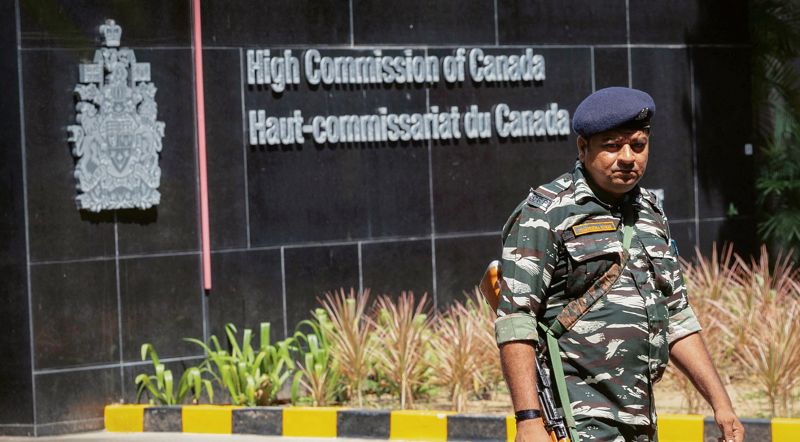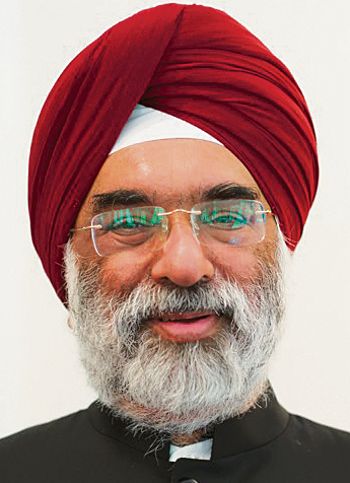India, Canada need to give quiet diplomacy a chance
- October 30, 2023
- Posted by: admin
- Categories: Canada, India

To restore its relationship with India, Canada must begin with attending to requests with regard to extradition, legal action and Interpol notices.


Gurjit Singh
Former Ambassador
THE relations between India and Canada are under strain after Canadian Prime Minister Justin Trudeau took the risky path of making allegations against India in the House of Commons and expelling an Indian diplomat. If he thought he had done enough to boost his relationship with the Indian diaspora, he was probably mistaken. Trudeau is now trying to prevent further deterioration in ties. This is mainly because he did not anticipate such a sharp and determined response from India.
India has asked Canada to withdraw around 40 diplomats so that parity can be established with the strength of 21 Indian diplomats in that country. What impact will this have on the bilateral relationship? It takes decades to build relationships through diplomatic channels and people-to-people contact. They can be torn apart by actions initiated for political reasons, as exemplified now by Canada’s foolhardiness.
India has blunted Canada’s attack somewhat by clearly saying that it is ready to discuss the matter if evidence is presented. A dialogue must always be private and have a basis. Canada violated both these tenets of diplomacy.
India has also made its stand clear to the US, on whom Canada seems to have relied for the information which forms the basis of its allegations. The US is busy mollifying allies over the suspension of funding to Ukraine and could well do without Canada’s self-created spat with India.
For years, India’s relationship with Canada has not been a political one. It has been based on economics, development, people-to-people contact, tourism, students and migration.
So long as these initiatives continued with government-to-government facilitation and no interference, the relationship with Canada was booming. This included an investment of nearly $60 billion by Canadian pension funds in Indian entities. Indians make up the largest component, nearly 40 per cent, of foreign students in Canada. They contribute $10.2 billion to Canadian universities. These institutions are disturbed by the current developments, which, if nothing else, will certainly delay visa processing on both sides. This means that students admitted to Canadian universities will have to wait much longer and will start missing classes. If this continues, Indian students would start looking for avenues other than Canada. This could include Australia and Germany, where Indian student numbers are also increasing.
Both PM Trudeau and Foreign Minister Melanie Joly are talking about not upping the ante with India and having quiet diplomatic talks. They have been stung by India’s response and the tone is distinctly different from the initial swipe about allegations of infringement of its sovereignty — without a shred of evidence being presented.
India reacted diplomatically and not politically. India understands the complications of diaspora politics, but also knows that it is the people of Indian origin in Canada whom Trudeau is trying to woo. This is fine, except that he is trying to do it at India’s expense. Therefore, India took two major decisions: first, it suspended the issuance of visas to Canadians by Indian missions in Canada and thereafter worldwide. Second, New Delhi told Canada on October 3 that nearly two-thirds of the Canadian diplomats must leave the country within a week. One wonders what 60-odd Canadian diplomats are doing in India because the development cooperation programme is not being conducted on a large scale. They are evidently involved in matters mostly related to visas, migration, students, etc. With their exit, the people-to-people engagement with Canada will suffer. Canadian universities are fearful that their intake of applicants may dwindle. Already, stories of poor facilities in smaller Canadian universities are doing the rounds on social media.
This will affect Indians adversely, and the political fallout is being felt in Canada, where the large Indian diaspora suddenly finds that with the holiday/festival season approaching, family reunions in India will be hit unless they already have visas. Their families will not be able to visit Canada nor would they be able to travel to India.
Trade relations are also getting impacted because Canada and India have suspended trade talks. Indian importers of lentils have discreetly moved towards increasing imports from Australia. It is evident that the Canadian Government now realises the importance of dealing with India diplomatically rather than through public allegations.
Will this repair the relationship soon? It is unlikely. Canada chose to raise this bogey, forgetting that India has an election earlier than Canada does. Therefore, strong action by India is being welcomed by the people in general.
Canada also realises that India’s decision to suspend visa services is annoying the Indian community in the Maple Country. Trudeau was trying to woo segments of the Indian diaspora through his pronouncements. This has evidently backfired as the silent majority of the diaspora is horrified at the turn of events.
The lesson from all this is clear. Countries which subscribe to liberal, democratic values and the rule of law should not try to push their partners around. They should stick to diplomatic paths and use quiet diplomacy to achieve their aims. India has been unhappy with Canada for many years over how it has dealt with criminals and terrorists, but India did not resort to expelling diplomats.
Canada chose to take action against an Indian diplomat and is now facing retaliation of a kind India has never undertaken. This leaves Ottawa with little leverage. The basis of the India-Canada relationship stands weakened. It is for Canada to restore it. It must begin with attending to requests with regard to extradition, legal action and Interpol notices. India has had an extradition treaty with Canada since 1987 and a treaty on mutual legal assistance since 1994. These remain ignored by the Canadian authorities.
Diplomacy is not simply about the issuance of visas, as Canada seems to think. It is about the creation and sustenance of trust.
